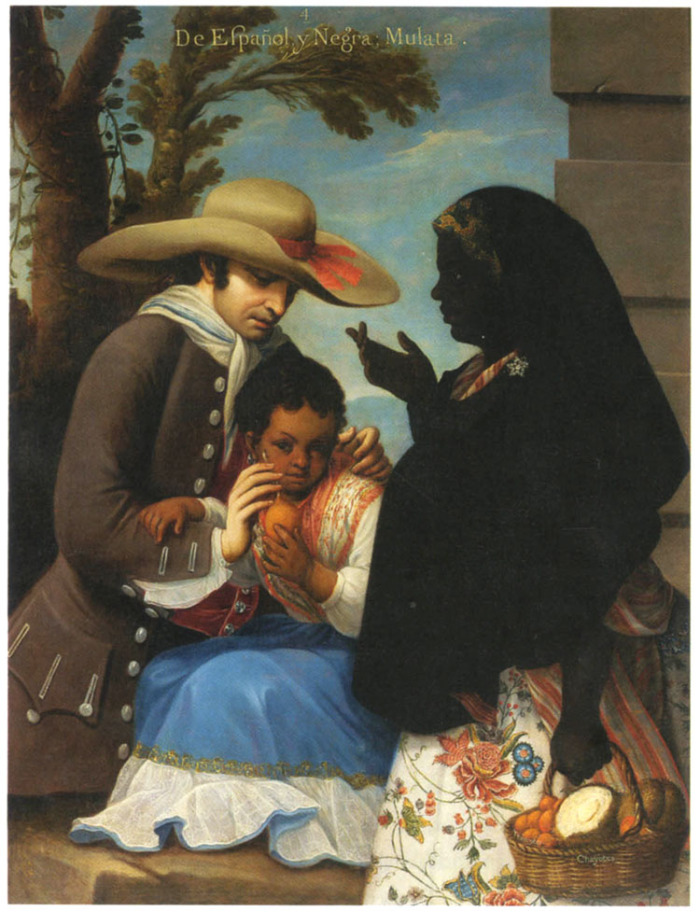|
Aquarela Do Brasil
"Aquarela do Brasil" (; 'Watercolor of Brazil'), written by Ary Barroso in 1939 and known in the English-speaking world simply as "Brazil", is one of the most famous Brazilian songs. Background and composition Ary Barroso wrote "Aquarela do Brasil" in early 1939, when he was prevented from leaving his home one rainy night due to a heavy storm. Its title, a reference to watercolor painting, is a clear reference to the rain. He also wrote "Três lágrimas" (Three Teardrops) on that same night, before the rain ended.About "Aquarela do Brasil" at blog Cifra Antiga Accessed on March 30, 2009. Describing the song in an interview to Marisa Lira, of the newspaper '' |
Portuguese Language
Portuguese ( or ) is a Western Romance language of the Indo-European language family originating from the Iberian Peninsula of Europe. It is the official language of Angola, Brazil, Cape Verde, Guinea-Bissau, Mozambique, Portugal and São Tomé and Príncipe, and has co-official language status in East Timor, Equatorial Guinea and Macau. Portuguese-speaking people or nations are known as Lusophone (). As the result of expansion during colonial times, a cultural presence of Portuguese speakers is also found around the world. Portuguese is part of the Iberian Romance languages, Ibero-Romance group that evolved from several dialects of Vulgar Latin in the medieval Kingdom of Galicia and the County of Portugal, and has kept some Gallaecian language, Celtic phonology. With approximately 250 million native speakers and 17 million second language speakers, Portuguese has approximately 267 million total speakers. It is usually listed as the List of languages by number of native speaker ... [...More Info...] [...Related Items...] OR: [Wikipedia] [Google] [Baidu] |
Walt Disney
Walter Elias Disney ( ; December 5, 1901December 15, 1966) was an American animator, film producer, voice actor, and entrepreneur. A pioneer of the Golden age of American animation, American animation industry, he introduced several developments in the production of cartoons. As a film producer, he holds the record for most Academy Awards earned (22) and nominations (59) by an individual. He was presented with two Golden Globe Special Achievement Awards and an Emmy Award, among other honors. Several of his films are included in the National Film Registry by the Library of Congress and have also been named as some of the greatest films ever by the American Film Institute. Born in Chicago in 1901, Disney developed an early interest in drawing. He took art classes as a boy and took a job as a commercial illustrator at the age of 18. He moved to California in the early 1920s and set up the Disney Brothers Studio (now the Walt Disney Company) with his brother Roy O. Disney, Roy. ... [...More Info...] [...Related Items...] OR: [Wikipedia] [Google] [Baidu] |
Brazil 78 Decca Jimmy Dorsey
Brazil, officially the Federative Republic of Brazil, is the largest country in South America. It is the world's List of countries and dependencies by area, fifth-largest country by area and the List of countries and dependencies by population, seventh-largest by population, with over 212 million people. The country is a federation composed of 26 Federative units of Brazil, states and a Federal District (Brazil), Federal District, which hosts the capital, Brasília. List of cities in Brazil by population, Its most populous city is São Paulo, followed by Rio de Janeiro. Brazil has the most Portuguese-speaking countries, Portuguese speakers in the world and is the only country in the Americas where Portuguese language, Portuguese is an Portuguese-speaking world, official language. Bounded by the Atlantic Ocean on the east, Brazil has a Coastline of Brazil, coastline of . Covering roughly half of South America's land area, it Borders of Brazil, borders all other countries and ter ... [...More Info...] [...Related Items...] OR: [Wikipedia] [Google] [Baidu] |
Francisco Alves (singer)
Francisco de Morais Alves (August 19, 1898 – September 27, 1952), better known as Francisco Alves, Chico Alves or Chico Viola, was a Brazilian singer, one of the most popular in the first half of the 20th century, and considered by many to be the greatest in the country. The quality of his work earned him in 1933, by broadcaster César Ladeira, the nickname "Rei da Voz" (Voice King). He recorded more than 500 78 rpm albums, among them the first electrical recording made in Brazil. He performed songs composed by musicians such as Cartola, Heitor dos Prazeres and Ismael Silva; and several songs became famous in his voice, like the first recording of samba " Aquarela do Brasil" by Ary Barroso. Alves died in a car accident at the Rodovia Presidente Dutra The Rodovia Presidente Dutra, (BR-116 – or SP-060 in the São Paulo (state), state of São Paulo), colloquially known as Via Dutra is a federal highway which runs through the eastern part of the São Paulo (state), ... [...More Info...] [...Related Items...] OR: [Wikipedia] [Google] [Baidu] |
Cerrado
The Cerrado () is a vast ecoregion of Tropics, tropical savanna in central Brazil, being present in the states of Goiás, Mato Grosso do Sul, Mato Grosso, Tocantins, Maranhão, Piauí, Bahia, Minas Gerais, São Paulo (state), São Paulo, Paraná (state), Paraná and the Federal District (Brazil), Federal District. The core areas of the Cerrado biome are the Brazilian highlands – the ''Planalto''. The main habitat types of the Cerrado consist of forest savanna, wooded savanna, park savanna and grass, gramineous-woody savanna. The Cerrado also includes savanna wetlands and gallery forests. The second largest of Biomes in Brazil, Brazil's major habitat types, after the Amazon rainforest, Amazonian rainforest, the Cerrado accounts for a full 21 percent of the country's land area (extending marginally into Paraguay and Bolivia). About 75% of the Cerrado’s 2 million km2 is privately owned. Vast amounts of research have shown that the Cerrado is one of the richest of all tropi ... [...More Info...] [...Related Items...] OR: [Wikipedia] [Google] [Baidu] |
Mulatto
( , ) is a Race (human categorization), racial classification that refers to people of mixed Sub-Saharan African, African and Ethnic groups in Europe, European ancestry only. When speaking or writing about a singular woman in English, the word is (). The use of this term began in the United States shortly after the Atlantic slave trade began and its use was widespread, derogatory and disrespectful. After the post Civil Rights Era, the term is now considered to be both outdated and offensive in the United States. In other Anglophone countries (the English-speaking world) such as English and Dutch-speaking West Indian countries, the word mulatto is still used. Countries with the highest percentages of persons who have equally high European and African ancestry — ''Mulatto'' — are the Dominican Republic (74%) and Cape Verde (71%). Mulattos in many Latin American countries, aside from predominately European and African ancestry, usually also have slight indigenous ad ... [...More Info...] [...Related Items...] OR: [Wikipedia] [Google] [Baidu] |
Pandeiro
The pandeiro () is a type of hand frame drum popular in Brazil. The pandeiro is used in a number of Brazilian music forms, such as samba, choro, coco, and capoeira music. The drumhead is tunable, and the rim holds metal jingles (''platinelas'') which are cupped, creating a crisper, drier and less sustained tone on the pandeiro than on the tambourine. It is held in one hand, and struck on the head by the other hand to produce the sound. Typical pandeiro patterns are played by alternating the thumb, fingertips, heel, and palm of the hand. A pandeiro can also be shaken to make sound, or one can run a finger along the head to produce a drum roll. Medieval instrument The term ''pandeiro'' was previously used to describe a square double-skinned frame drum, often with a bell inside; such an instrument is now known by the term '' adufe'' in Spain and Portugal. The term ''pandeiro'' (''pandero'' in Asturian) is still used in parts of Galicia, Asturias and Portugal to describe the ... [...More Info...] [...Related Items...] OR: [Wikipedia] [Google] [Baidu] |
Carmen Miranda
Maria do Carmo Miranda da Cunha (9 February 1909 – 5 August 1955), known professionally as Carmen Miranda (), was a Portuguese-born Brazilian singer, dancer, and actress. Nicknamed "The Brazilian Bombshell", she was known for her signature fruit hat outfit that she wore in her American films. As a young woman, Miranda designed clothes and hats in a boutique before making her debut as a singer, recording with composer Josué de Barros in 1929. Miranda's 1930 recording of "Taí (Pra Você Gostar de Mim)", written by Joubert de Carvalho, catapulted her to stardom in Brazil as the foremost interpreter of samba. During the 1930s, Miranda performed on Brazilian radio and appeared in five Brazilian ''Cinema of Brazil#1930s and 1940s, chanchadas'', films celebrating Brazilian music, dance and the country's carnival culture. ''Hello, Hello Brazil!'' and ''Hello, Hello, Carnival!'' embodied the spirit of these early Miranda films. The 1939 musical ''Banana da Terra'' (directed by Ruy ... [...More Info...] [...Related Items...] OR: [Wikipedia] [Google] [Baidu] |
Nazi
Nazism (), formally named National Socialism (NS; , ), is the far-right politics, far-right Totalitarianism, totalitarian socio-political ideology and practices associated with Adolf Hitler and the Nazi Party (NSDAP) in Germany. During Hitler's rise to power, it was frequently referred to as Hitler Fascism () and Hitlerism (). The term "neo-Nazism" is applied to other far-right groups with similar ideology, which formed after World War II, and after Nazi Germany collapsed. Nazism is a form of fascism, with disdain for liberal democracy and the parliamentary system. Its beliefs include support for dictatorship, fervent antisemitism, anti-communism, anti-Slavism, anti-Romani sentiment, scientific racism, white supremacy, Nordicism, social Darwinism, homophobia, ableism, and the use of eugenics. The ultranationalism of the Nazis originated in pan-Germanism and the ethno-nationalist ''Völkisch movement, Völkisch'' movement which had been a prominent aspect of German nationa ... [...More Info...] [...Related Items...] OR: [Wikipedia] [Google] [Baidu] |
Getúlio Vargas
Getúlio Dornelles Vargas (; ; 19 April 1882 – 24 August 1954) was a Brazilian lawyer and politician who served as the 14th and 17th president of Brazil, from 1930 to 1945 and from 1951 until his suicide in 1954. Due to his long and controversial tenure as Brazil's provisional, constitutional, dictatorial and democratic leader, he is considered by historians as the most influential Brazilian politician of the 20th century. Born on 19 April 1882 in São Borja, Rio Grande do Sul, to a powerful local family, Vargas had a short stint in the Brazilian Army before entering law school. He began his political career as district attorney, soon becoming a state deputy prior to a brief departure from politics. After returning to the state Legislative Assembly, Vargas led troops during Rio Grande do Sul's 1923 civil war. He entered national politics as a member of the Chamber of Deputies. Afterward, Vargas served as Minister of Finance under president Washington Luís before resi ... [...More Info...] [...Related Items...] OR: [Wikipedia] [Google] [Baidu] |
Estado Novo (Brazil)
The Estado Novo (), or Third Brazilian Republic, began on 10 November 1937, and consolidated Getúlio Vargas' power. Vargas had assumed leadership of Brazil following the 1930 revolution that ended the First Republic. The Estado Novo ended politically on 29 October 1945, and officially on 31 January 1946. It was characterized by Brazilian nationalism, centralized power, anti-communism and authoritarianism. It was part of the period known as the Vargas Era that began with the Second Brazilian Republic. Vargas first took power as provisional president in 1930 following the revolution that ended the First Republic and launched the Second Brazilian Republic. Several ensuing coup attempts failed to depose him, until he granted himself new powers under the Third Brazilian Republic or Estado Novo. In early 1932, the Constitutionalist Revolution led by the Democratic Party of São Paulo, had failed due to a lack of unity within the alliance. As head of the provisional government ( ... [...More Info...] [...Related Items...] OR: [Wikipedia] [Google] [Baidu] |





